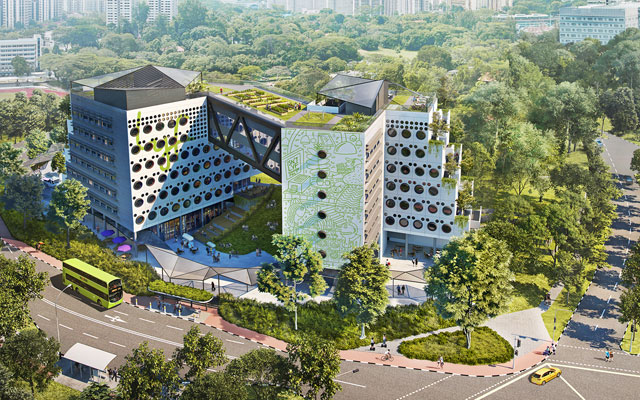The pandemic may have devastated Singapore's travel and tourism industry but green financing for hotel properties has remained buoyant and experts expect even stronger investments ahead.
- More hotel groups, hotel developers securing green loans
- Green loans on the rise; finance sector plays its part to support government and private sector’s sustainability agenda
- Green financing encourages sustainable business practices, engagement with responsible travellers
The pandemic may have devastated Singapore’s travel and tourism industry but green financing for hotel properties has remained buoyant and experts expect even stronger investments ahead.
Major financiers and industry players TTG Asia spoke to indicated that sustainability efforts to green properties will likely accelerate post-pandemic and green financing seems poised on an upward trajectory too.

The focus on sustainable financing in the hospitality sector has grown significantly over the years as travellers become more aware of the environmental and social impact they have on local ecosystems and communities, according to Lam Li Min, head of real estate and hospitality, sector solutions group, group wholesale banking, UOB.
Last year, Park Hotel Group secured its first green loan of S$237 million (US$176.1 million) under the UOB Real Estate Sustainable Finance Framework. Launched in 2019, it was the first-of-its-kind for the sector established by a Singapore bank. The framework sets out the eligibility criteria, including sustainability strategy, objectives, ratings and performance targets, for companies to meet when applying for green loans or sustainability-linked loans.

Tan Shin Hui, executive director, Park Hotel Group said: “Sustainable financing for the hospitality sector is like a carrot on a stick for hotel developers and operators to incorporate sustainability in their business strategy and decisions. This development in financing encourages companies to consider environmental impact of their investments and new business initiatives. It also motivates hotel developers and operators to measure and evaluate the positive difference they are making on the environment.”
This month, Worldwide Hotels Group also inked its first green loan facility worth S$405 million for its new hotel and commercial development, 8 Club Street, with Maybank Singapore. The agreement with the Group is one of the largest bilateral green financing for a hospitality asset in Singapore to date.
Maybank Singapore has also dished out S$250 million in Islamic green financing to property investment chain, Royal Group back in March – said to be the world’s first for hospitality. The funds will go towards the upcoming Raffles Sentosa Resort & Spa Singapore and the existing Sofitel Singapore Sentosa Resort & Spa. This marks Royal Group’s first foray into sustainability finance, according to Gregory Seow, head of global banking, Maybank Singapore.

“Within the hospitality sector, there is increasingly more focus given to green financing as the pandemic is a wake-up call for sustainable financing. We do see more clients embedding sustainability into their business models to show their stakeholders that they take ESG (Environmental, Social and Governance) targets seriously and will work towards the desirable outcomes they aim for,” Seow added.
Ascott Residence Trust (ART) will use its S$50 million five-year green loan from DBS Bank in January this year to finance its maiden development project and co-living property, lyf one-north Singapore.
Beh Siew Kim, CEO of ART Management and Ascott Business Trust Management, said: “Being the first hospitality trust in Singapore to secure a green loan reinforces ART’s commitment to do our part for the environment and the communities we operate in. In 2020, we increased the number of green properties in ART’s portfolio by about four times compared to 2019. To date, 21 properties in the ART portfolio have obtained green building ratings and certification.”
According to a 2018 UN World Tourism Organization report, hotels account for about one per cent of global greenhouse gas emissions as an industry – so it is crucial for hospitality businesses to embark on ways to reduce their carbon footprint.
Greening makes business sense
Apart from being able to secure green financing for their projects and combat climate change, integrating green practices into their properties will ultimately benefit the bottomline for hotel owners and operators as guests trend towards travelling sustainably and responsibly too.
Seow pointed out that both government and the private sector have also been advocating the sustainability agenda as a differentiator on the country, as well as on a company level.
From 2019 to 1H2020, the Monetary Authority of Singapore revealed that Singapore corporates have borrowed S$10.2 billion through green and sustainability-linked loans, and S$4.8 billion of green and sustainability bonds were issued from Singapore. There is an increased traction for real estate owners and developers to opt for green loans.
As at mid-2020, the green share of total loan and bond transactions in Singapore remains modest at less than five per cent, reflecting the significant opportunity for growth ahead. Seow added: “The finance sector will continue to play our part in promoting sustainable financing for the hospitality sector.”




















